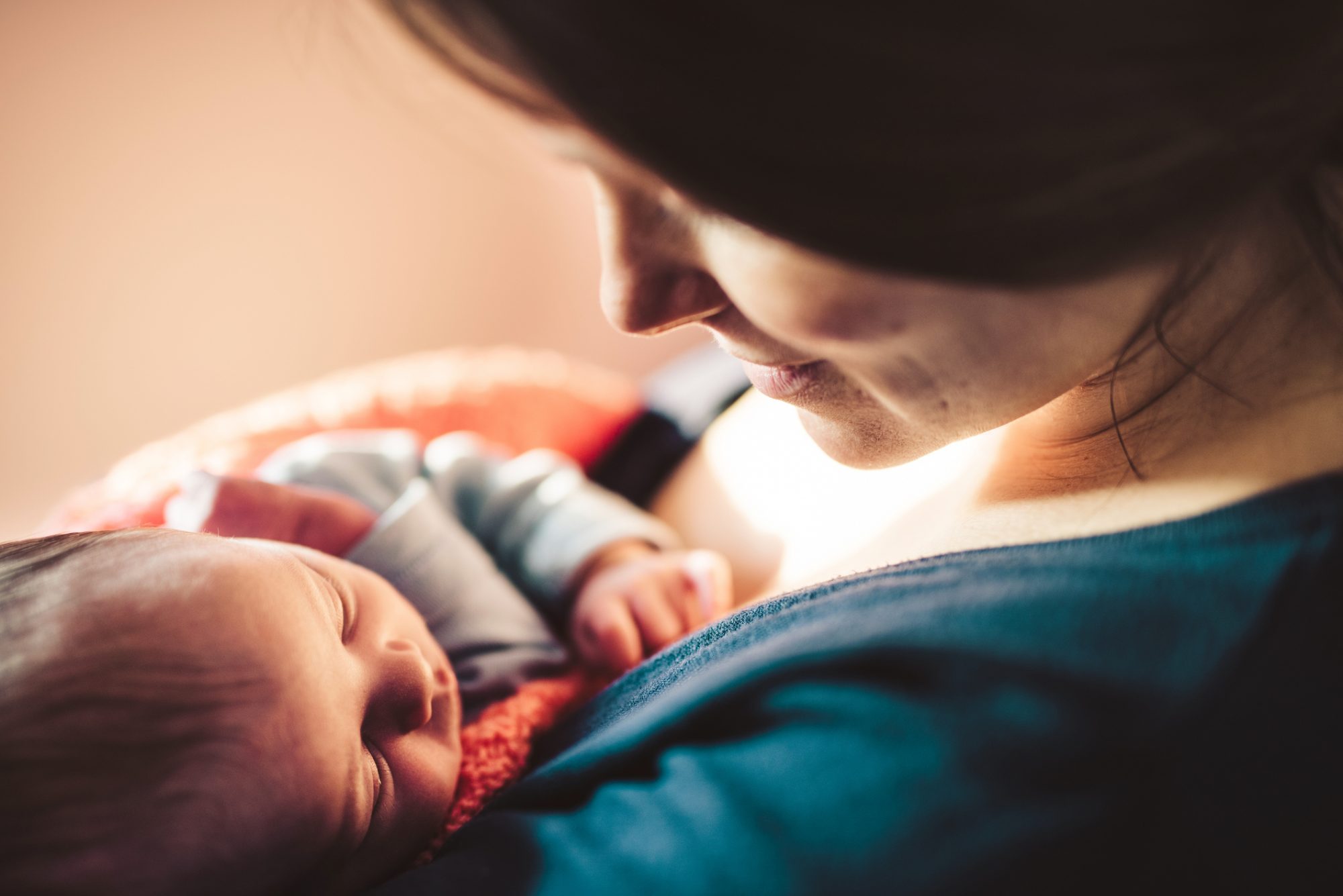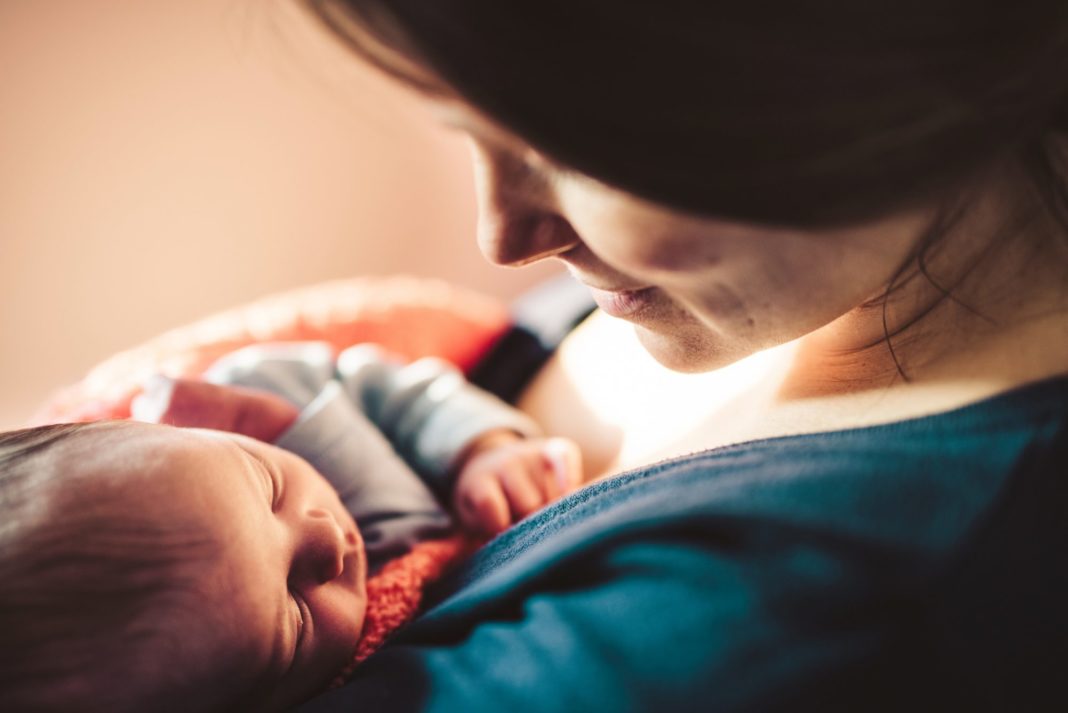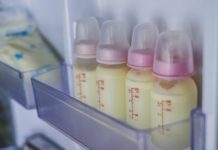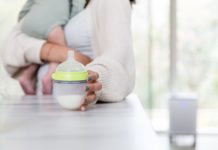
When I had my first child 11 years ago, I felt nervous and insecure about becoming a parent. So, naturally, I bought all of the baby gear (even though I struggled to afford most of it), hoping it would imbue me with knowledge and confidence.
Like many new parents, I thought buying the right stuff could help me to parent better: the fancy Bugaboo stroller (although I did manage to snag a hand-me-down one through a friend), the overpriced baby bath that's essentially a glorified bucket but came "expert-recommended," the masses of unnecessary baby furniture I ended up squashing into my way-too-small space…
I'm not alone: Data from the most recent Consumer Expenditures Survey found that middle-income families will spend nearly $13,000 per year, per child. I'm pretty confident a significant portion of that sum is spent on stuff that ends up piled in a corner, unused.
As I had second, third, and fourth children over the years, I realized that most of the baby items I initially bought weren't "essential" at all. I could have saved hundreds just by waiting a few months to see what my baby really liked and needed—or avoided buying certain items entirely. After all, that "status pram" Bugaboo wasn't any help when it came to sleeplessness, mastitis, or any of the other issues that accompanied my newborn.
New parents: You need far less baby stuff than you think. Here are the baby items you can live without—plus tips from the pros on why and how to skip them.
Too many baby clothes.
While baby clothes can be adorably irresistible, the reality is, you hardly need to buy any in the beginning. In those early days, your baby won't enjoy getting changed (by "won't enjoy," we mean "will rant and rage"), so those cutesy outfits you envisaged them wearing work much better in your mind than in reality. Stick to sleep suits and onesies.
Speaking of onesies, according to baby gear expert Jamie Grayson, "people love gifting cute onesies to kids, so I would err on the side of minimalism when it comes to registering for or buying a ton of expensive baby clothes. They get stained, and kids grow out of them too quickly."
Grayson also advises parents to steer clear of baby shoes, noting that "babies aren't walking anywhere" and "in terms of development, it's important that babies be barefoot as much as possible when first learning to scoot, crawl, cruise, and walk."
For those looking to save space and economize on organic cotton baby clothes, you can now rent baby outfits through sites like UpChoose and Borobabi.
Bedding accessories.
Look, we've all fallen for the Instagram nursery fantasy of a perfectly curated child's bedroom… but when it comes to infants, the less decorative bedding, the better.
"Do not purchase bumpers or blankets. They're unsafe for use in the crib and therefore are safe for aesthetic use/decoration only. Stick with a tightly fitted crib sheet. There are many gorgeous Instagram-backdrop-worthy crib sheets now," says CEO of baby product concierge site, Gugu Guru, Monica Banks.
ALL of the soothing baby chairs.
While a stressed-out parent will do anything to soothe a screaming baby, you don't need to fill your home with plastic "baby holders," according to Banks. "Choose one or maybe two from a swing, bouncer, rocker, lounger, Pack N Play, Exersaucer, etc."
We'd suggest going for items that have some longevity, too: Some baby bouncers convert to chairs for toddlers, so they have a longer shelf life than a Jumperoo-style toy a baby will only be able to use for a few months, for example.
Bottle bundles—at least in the beginning.
While it can feel calming to do all the prep work by purchasing everything in advance of your baby's arrival, you might end up buying things you don't need.
"Your baby is also going to have a preference, and they are going to tell you what they like. No need to buy big bottle bundles before you know what bottle your baby takes to," says Molly Pross, founder of Bump Bestie (the site has a registry checklist with asterisks next to items deemed most essential).
However, Pross does recommend buying in bulk when it comes to diapers and wipes, which can be a money (and hassle) saver, as well as investing in "double duty" items where possible, like a car seat cover that doubles as a nursing cover and a grocery cart cover.
Gadgets that sound like they’ll make life easier—but won’t really.
There are quite a few items that seem like a parent's dream come true on paper, but upon closer inspection, they're not really all that useful.
Take the wipes warmer: "The idea of warm wipes sounds great, but what happens when you're out and cannot warm up the wipes on the go? If you think they're cold, just hold one between your hands a bit to warm them first," advises Grayson.
Other gadgety baby items that Grayson thinks new parents can do without? A bottle sterilizer, which takes up a lot of counter space (sterilizing with a pot of boiling water is just as effective) and a bottle warmer. Again, you can use a small pot of warm water to heat bottles. When your baby starts weaning, you don't need a separate baby food blender either.
A bath thermometer—even if it is shaped like a cute frog or stingray—is another item you can skip. "While water temperature is obviously important because we want to avoid burns, you can just test it with your own hands or by dipping your elbow in. You don't need a separate thermometer," says Grayson.
Bulky furniture pieces.
The sheer amount of furniture designed for a baby's room is pretty overwhelming—and not every item is required.
You can give changing tables, which easily cost upwards of $100, a pass, and simply use a dresser with a changing pad on top (a changing pad on a carpeted surface works too). You don't need a diaper stacker/organizer either, or that $200 rocking nursing chair.
Also, your baby doesn't need multiple beds: If you have a crib, you can skip the bassinet, which should save another $100 .
Anything that doesn’t work with your lifestyle.
Not every baby item is designed for every family. Your dream of being a parent who jogs in the park with your baby may not be your reality if you never had the desire to go on those runs solo, so you can probably skip the jogging stroller. Banks refers to these purchases as "things not according to your lifestyle, like travel gear if you do not travel."
She also recommends only buying stuff that's relevant to your climate and season—which means you can avoid buying newborn winter gear for your summer-born baby, or decking out your buggy in rain gear if you live somewhere that's mostly dry.
A baby tub.
You can safely bathe your little one in the shower, bath, or kitchen sink without any extras, and taking a bath together with baby is one of the loveliest ways to relax and bond (just wait until baby's navel has healed to be safe).
Lots of toys.
When organizing the nursery, you can skip the mobile, according to Banks, and you don't want to overdo it when it comes to toys. Stuffed animals are among the most common gifts, so you really don't need to buy any yourself.
A diaper bag.
This is an item I purchased when I had my firstborn in the hopes that it would help keep me better organized and turn me into a more functional version of myself (as if a bag can make that happen). Save yourself the cost and just reuse your favorite roomy tote or backpack. Slip in a portable changing mat and all the baby paraphernalia, and it'll do the trick just as well.
Baby grooming products.
There's a whole market of baby grooming items out there you can avoid, such as baby cologne ("Yes, it's a thing. No, you shouldn't use it," says Grayson). Baby laundry detergent is another unnecessary purchase when you can just use a regular fragrance-free detergent.
Pro tip: Hospitals often give new parents grooming kits with items such as combs and aspirators free of charge, according to Banks—so you don't need to buy those either.

































